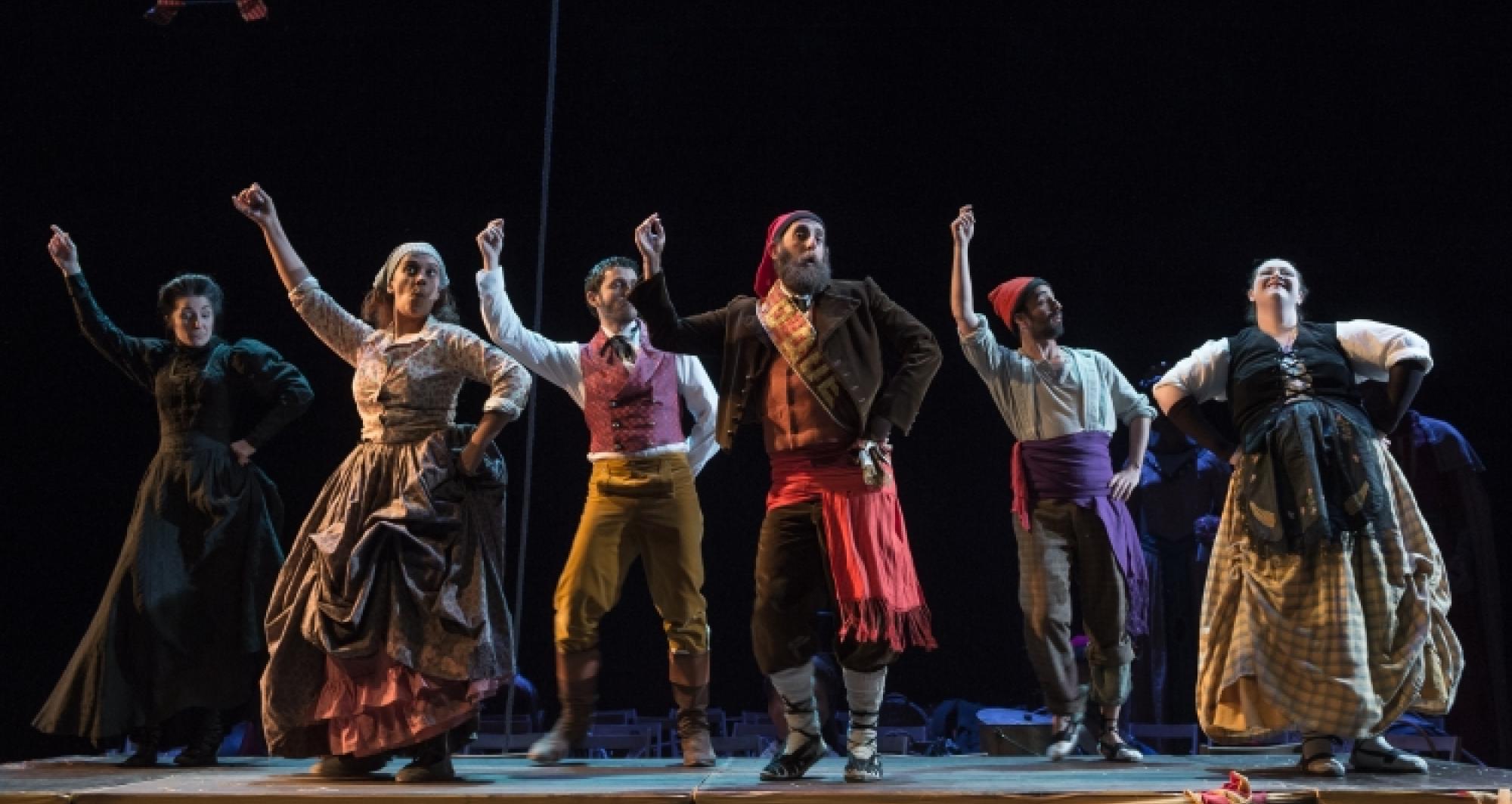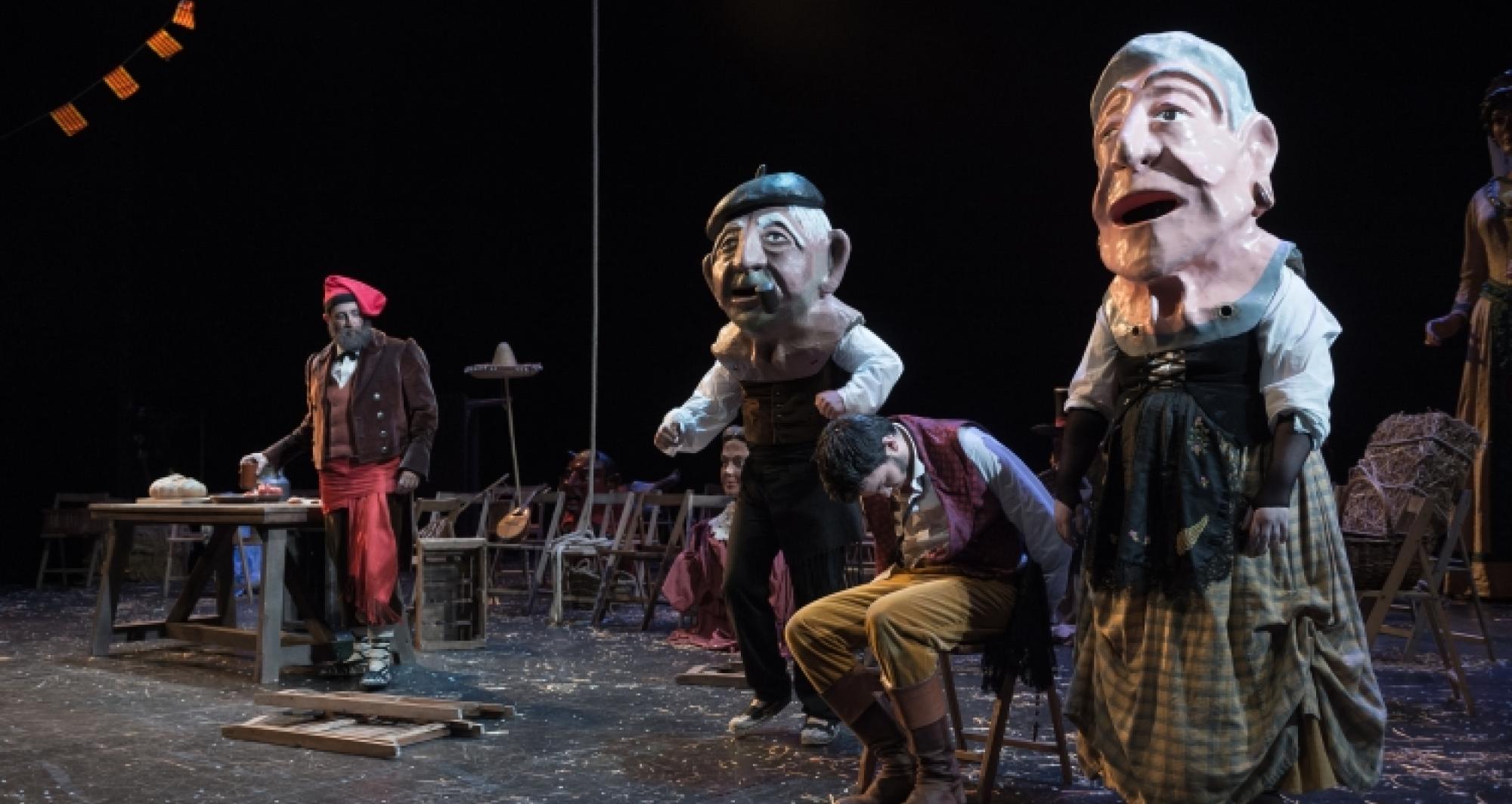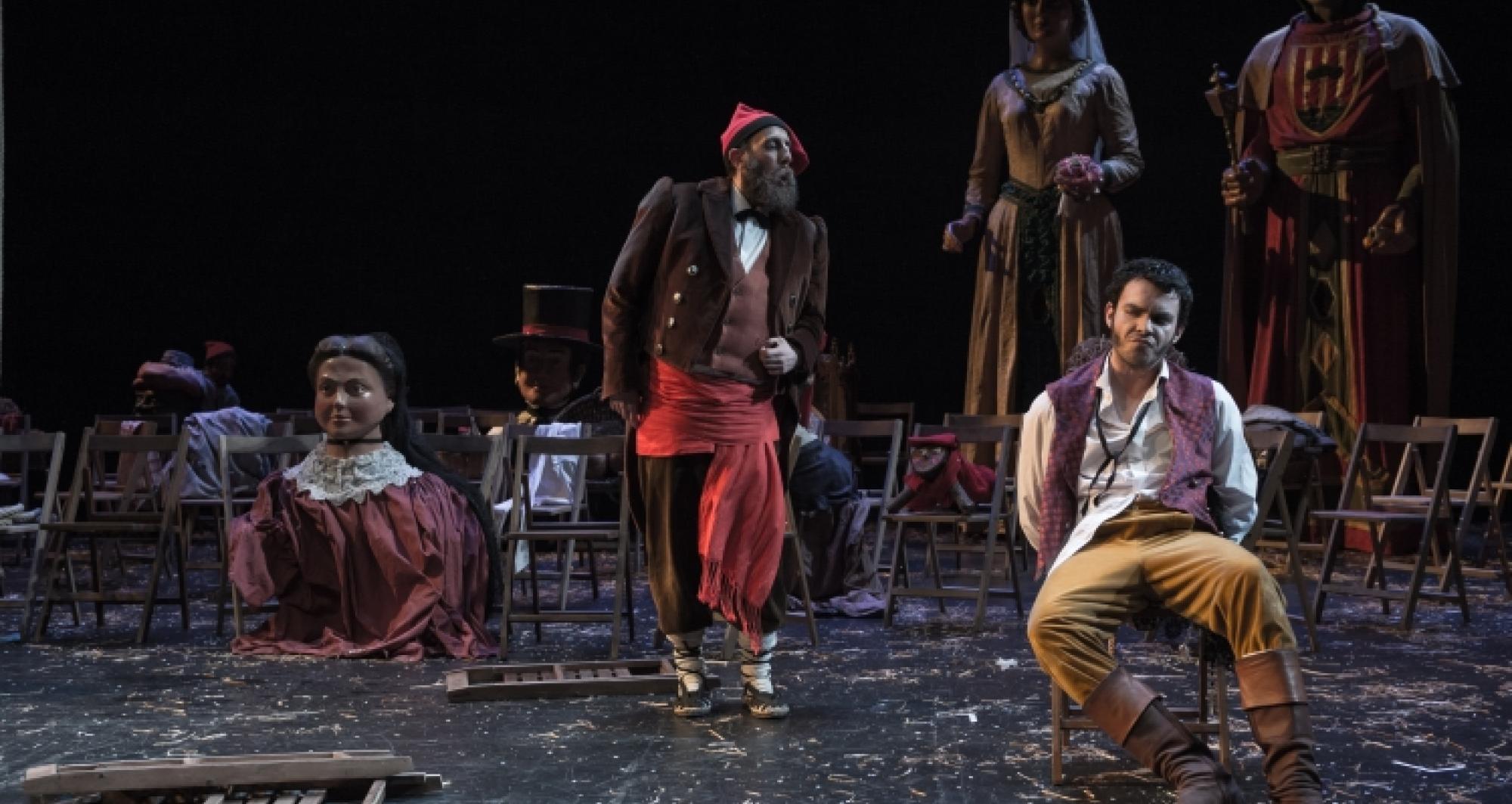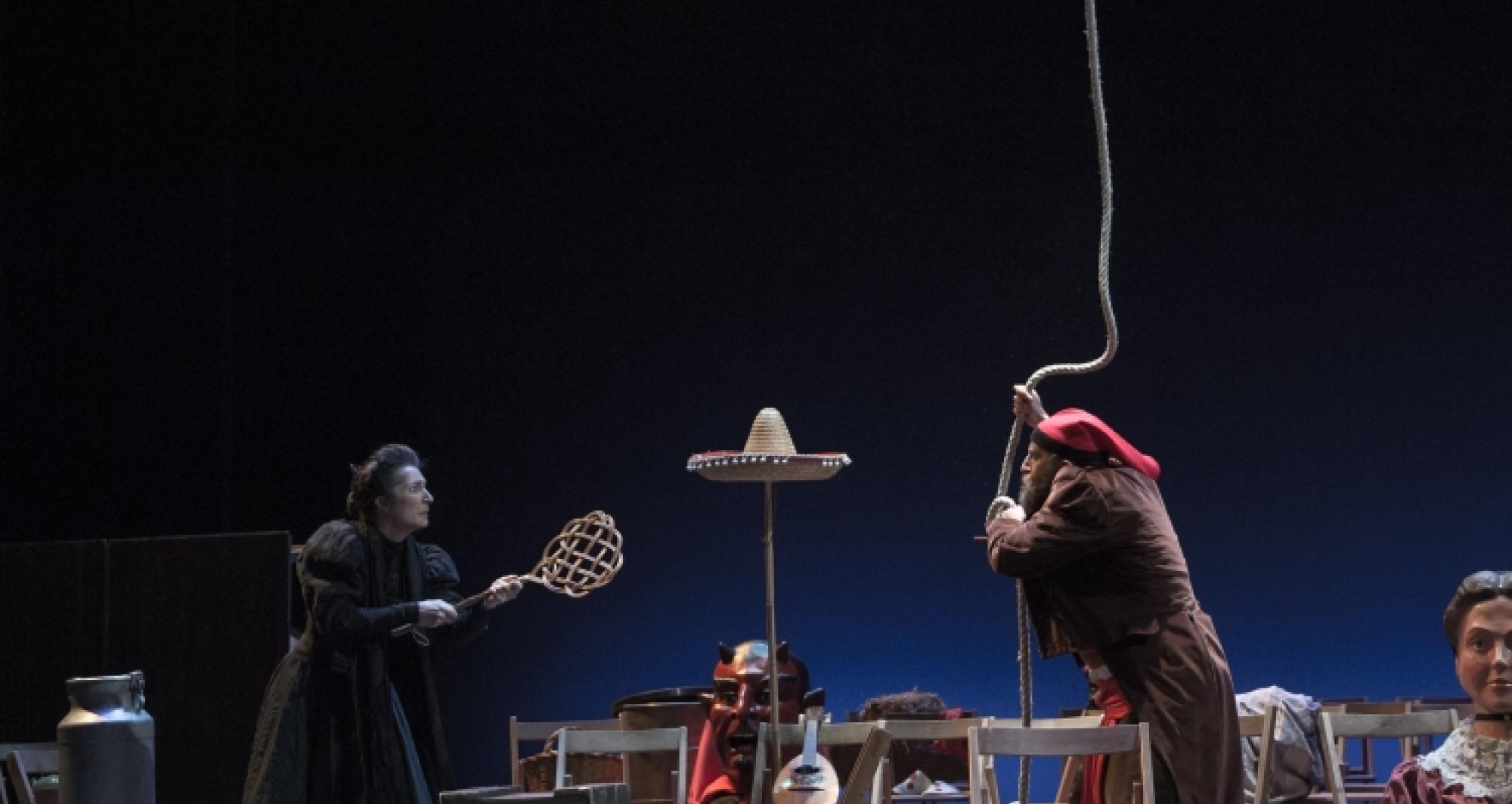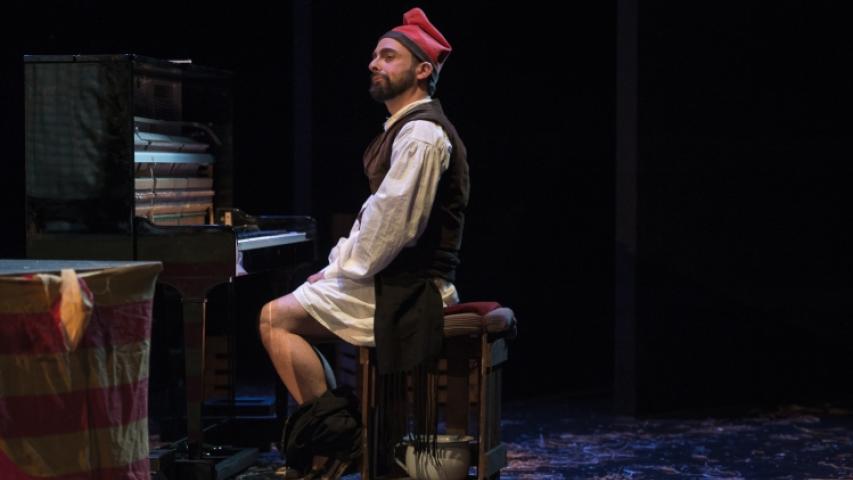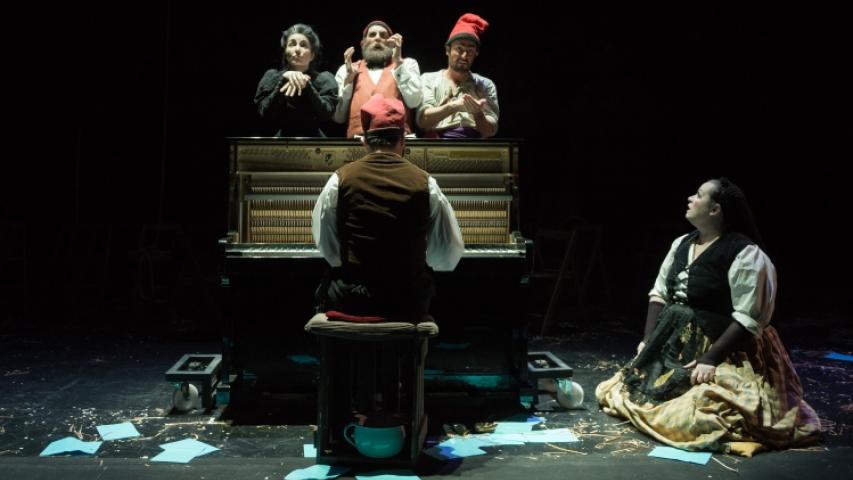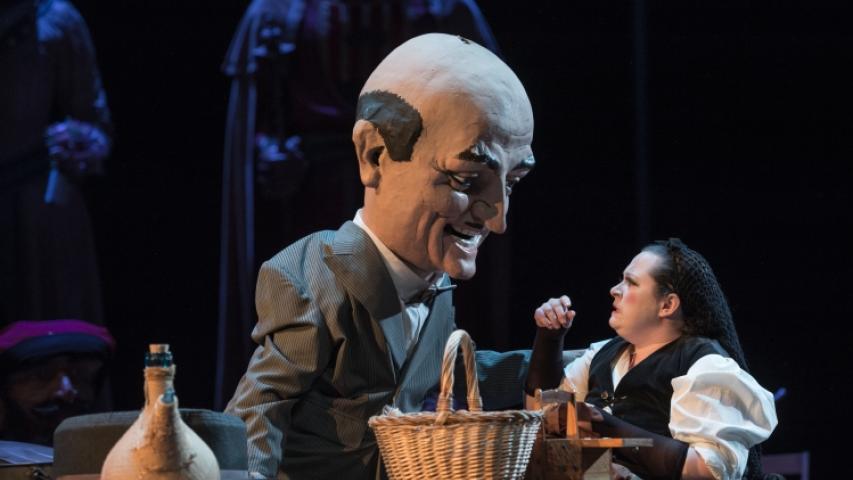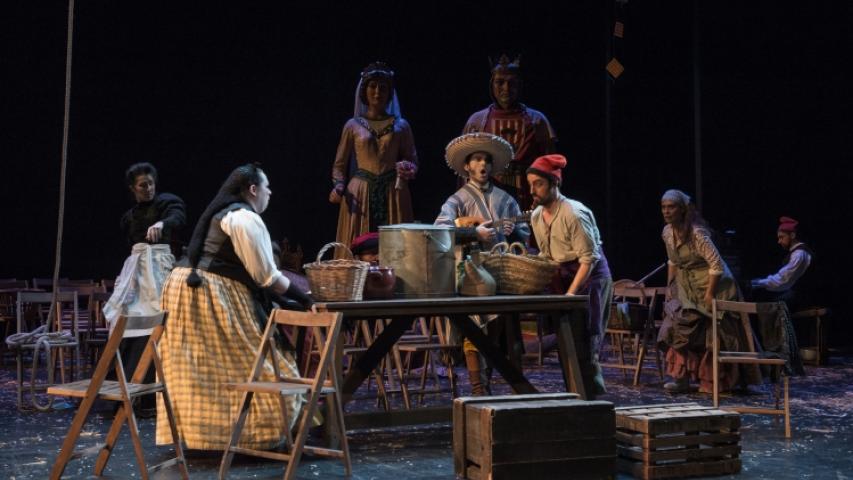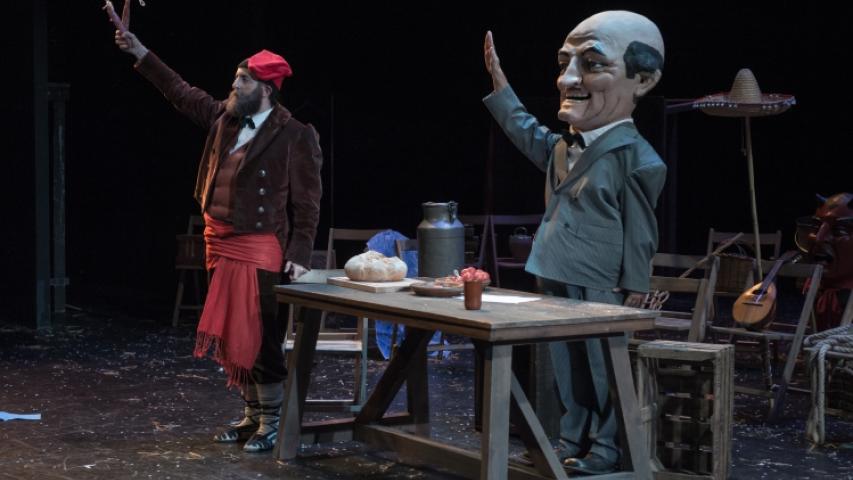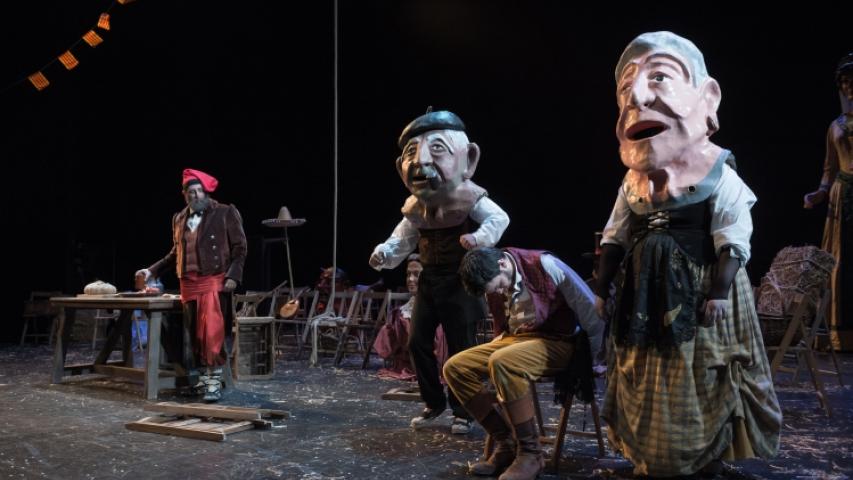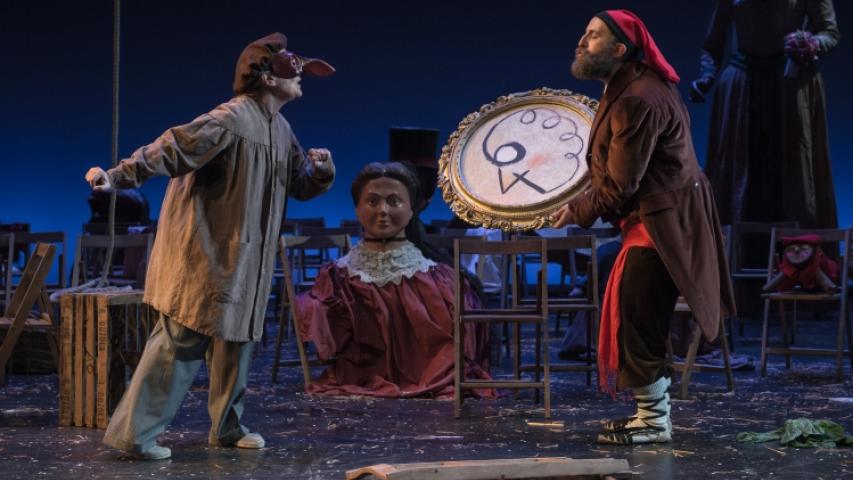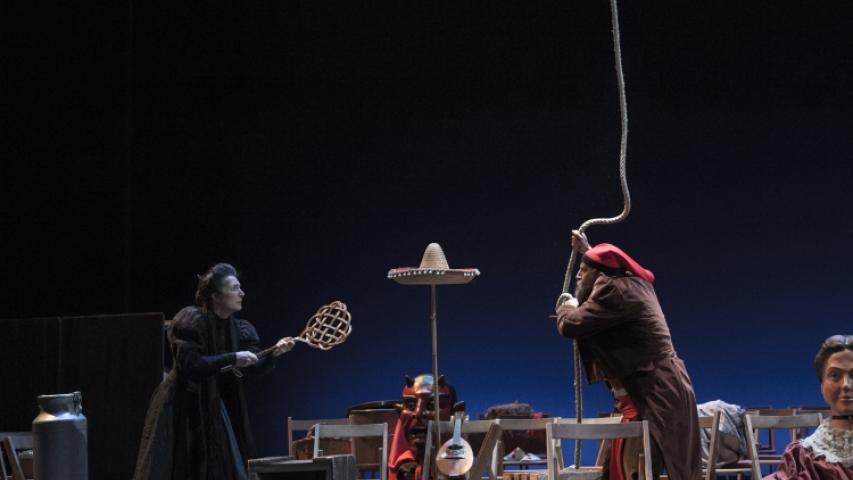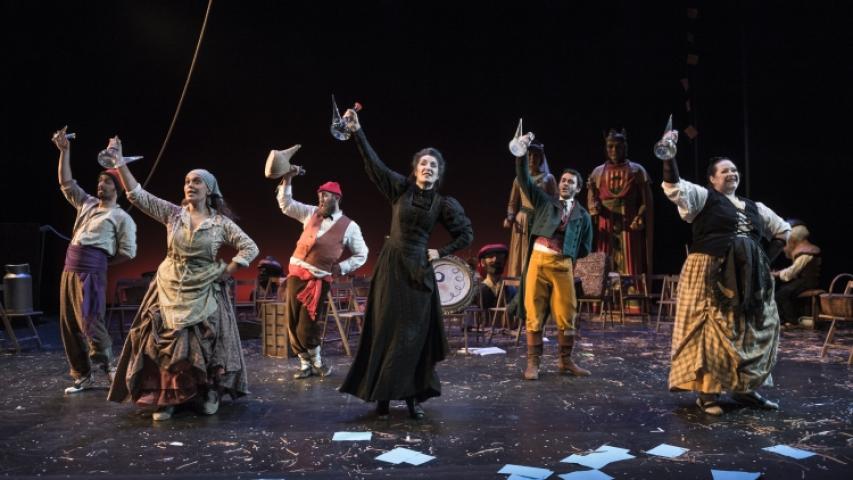Show finished
L’esquella de la torratxa
Serafí Pitarra
Serafí Pitarra became known on the Barcelona public stages with L’esquella de la Torratxa, which premiered in 1864 at the Teatre de l’Odeó, in Sant Agustí Square. The play enjoyed immense success, especially when it moved to the Teatre dels Camps Elisis in the Gardens in passeig de Gràcia that same summer. It marked the first achievement of the new drama in Catalan, which in a mere two years would become the norm. The success of productions in Catalan during the summer seasons can be explained by the musical nature of these pieces, which were often one act farces which included some songs to satisfy the tastes of the audience. A small Catalan town is about to hold elections to choose its representative and the mayor will try to buy the votes of the citizens for his protégé. However, very soon everything becomes entangled with the emergence of another candidate and with the discovery of the mayor’s secrets from his youth, which will unleash a hilarious plot in which the least important thing will be respect for the rules of the democratic game. L’esquella de la Torratxa is a parody of the romantic drama La campana de la Almudaina by Joan Palou i Coll, in which the conflicts of honour in the play in Spanish become in Pitarras’ text a parody of a political system in which despotism is still highly influential.
Autoria
Serafí Pitarra
Direcció musical i piano
Francesc Mora
Assessorament d’il·luminació
Ignasi Camprodon
Espai escènic i vestuari
EGOS Teatre y TNC
Gegants (Ermessenda de Montsoriu, Guerau I)
Colla de Geganters i Grallers de Pineda de Mar
Capgrossos
Colla de Gegants i Nans de Vilassar de Mar i Colla de Geganters i Grallers de Pineda de Mar
Orelletes
Quimeta Orpinell
Amb
Anna Alborch Lali Camps Rubèn Montañà Albert Mora Francesc Mora Toni Sans Maria Santallusia
Producció
Teatre Nacional de Catalunya
Agraïments
Joan Maria Segura i Bernadas,Agrupació de Colles de Geganters de Catalunya,Miquel Gili,Gemma Beltran (Dei Furbi),Laura Guerrero,Jordi Congost «Papa Congo»,Zum-Zum Teatre, a l'equip del TNC i a les nostres famílies, que, malgrat tot, sempre ens diuen que ho fem molt bé.
